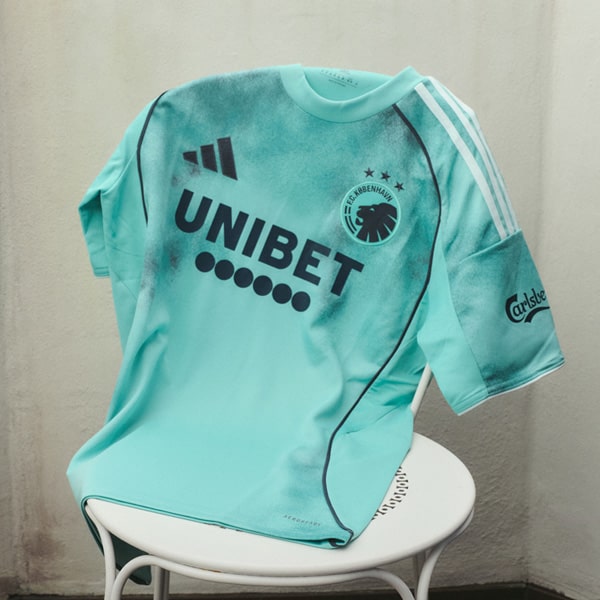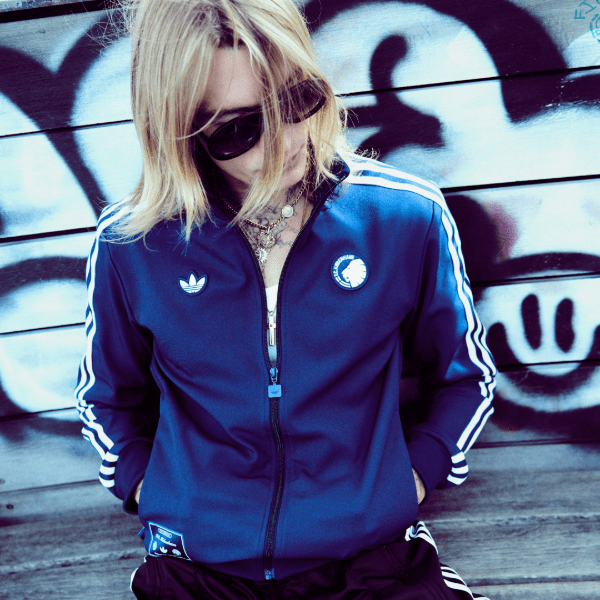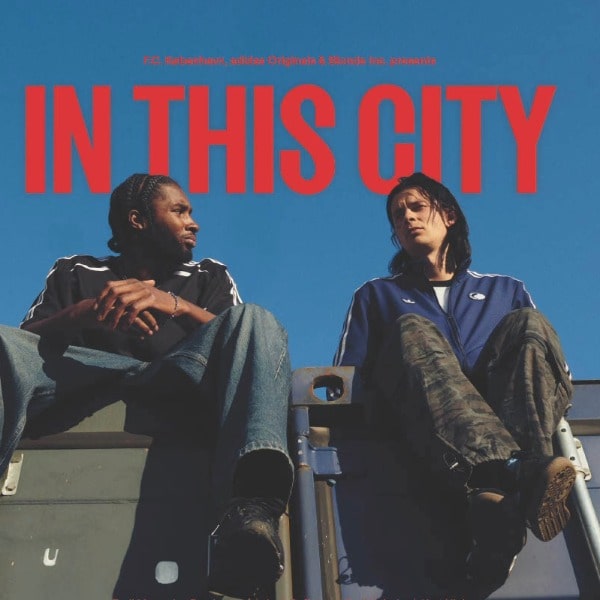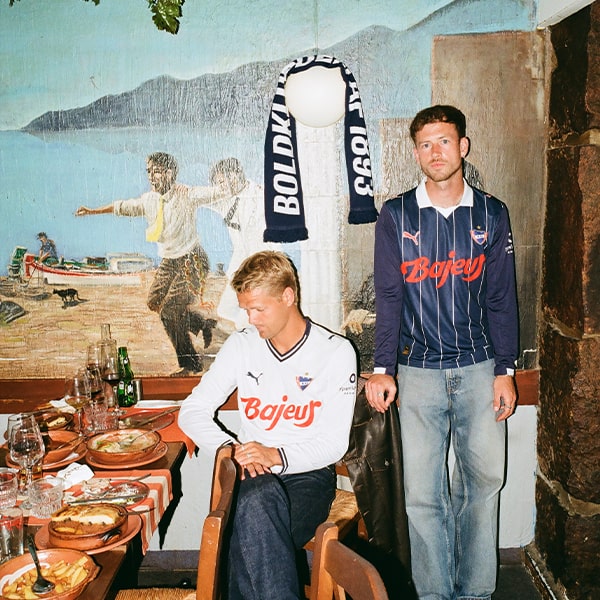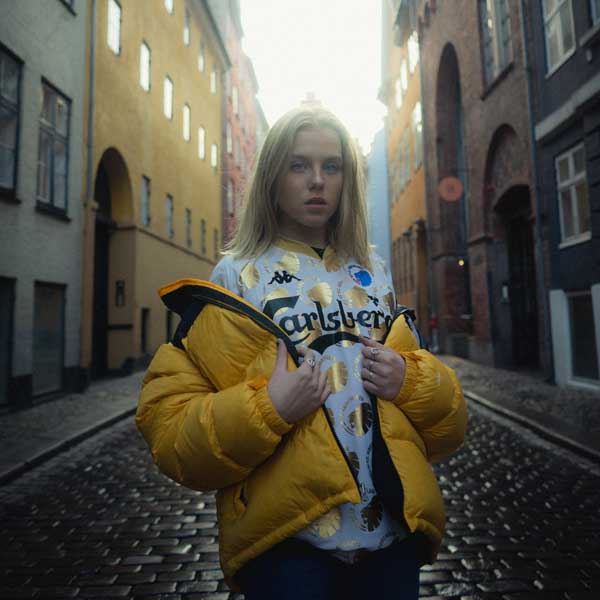One of Europe’s most exciting, creative, and inclusive football teams, B.93 play in Denmark’s second league with the mindset of a cultural institution.
In East Copenhagen, just behind the national football stadium, and home of FC Copenhagen sits another stadium. Østerbro Stadion can seat about four and a half thousand spectators, less than one tenth of the capacity of Parken, its bigger and more famous neighbour. Østerbro is the home to B.93 – or, to give them their full name, Boldklubben af 1893 – one of Denmark’s most historic and storied clubs. After its early successes, B.93 has been in the trophyless wilderness for more than 40 years, languishing out of the spotlight in the country’s third and fourth divisions for most of that time.
Now, though, B.93 is experiencing a renaissance. As well as a steady place in Denmark’s second tier, the club has earned a reputation as one of Europe’s most exciting, creative, and inclusive football teams. There have been collaborations with local artists and brands, a community focus that champions homegrown players, and off-pitch directives which include partnerships with local charities combating gambling addictions. At Copenhagen Fashion Week last month, B.93’s home stadium played host to Baum und Pferdgarten’s SS25 show and the local womenswear label also designed the women’s team jerseys. The club itself also launched a limited edition collaboration with Irish knitwear label Pellador.
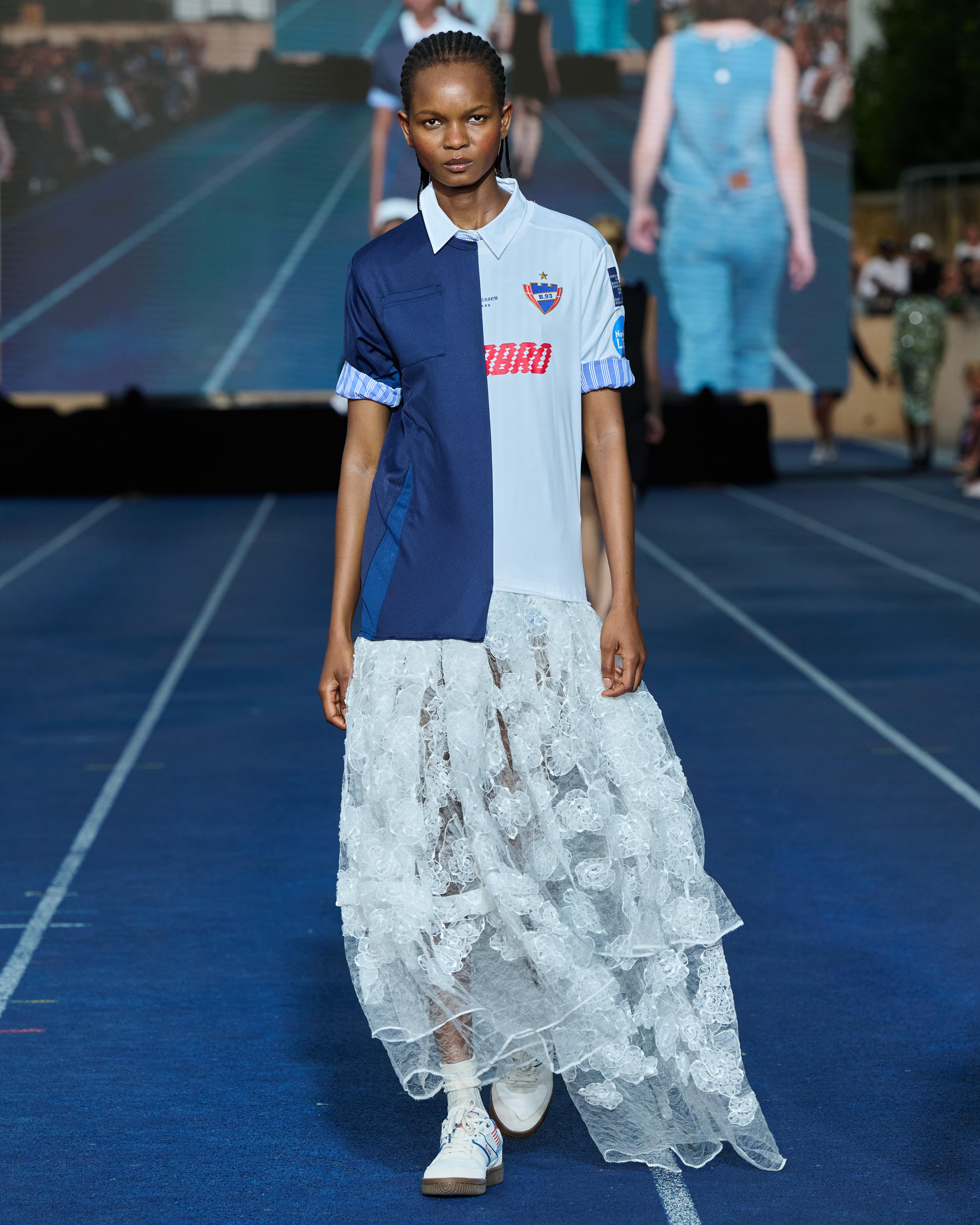
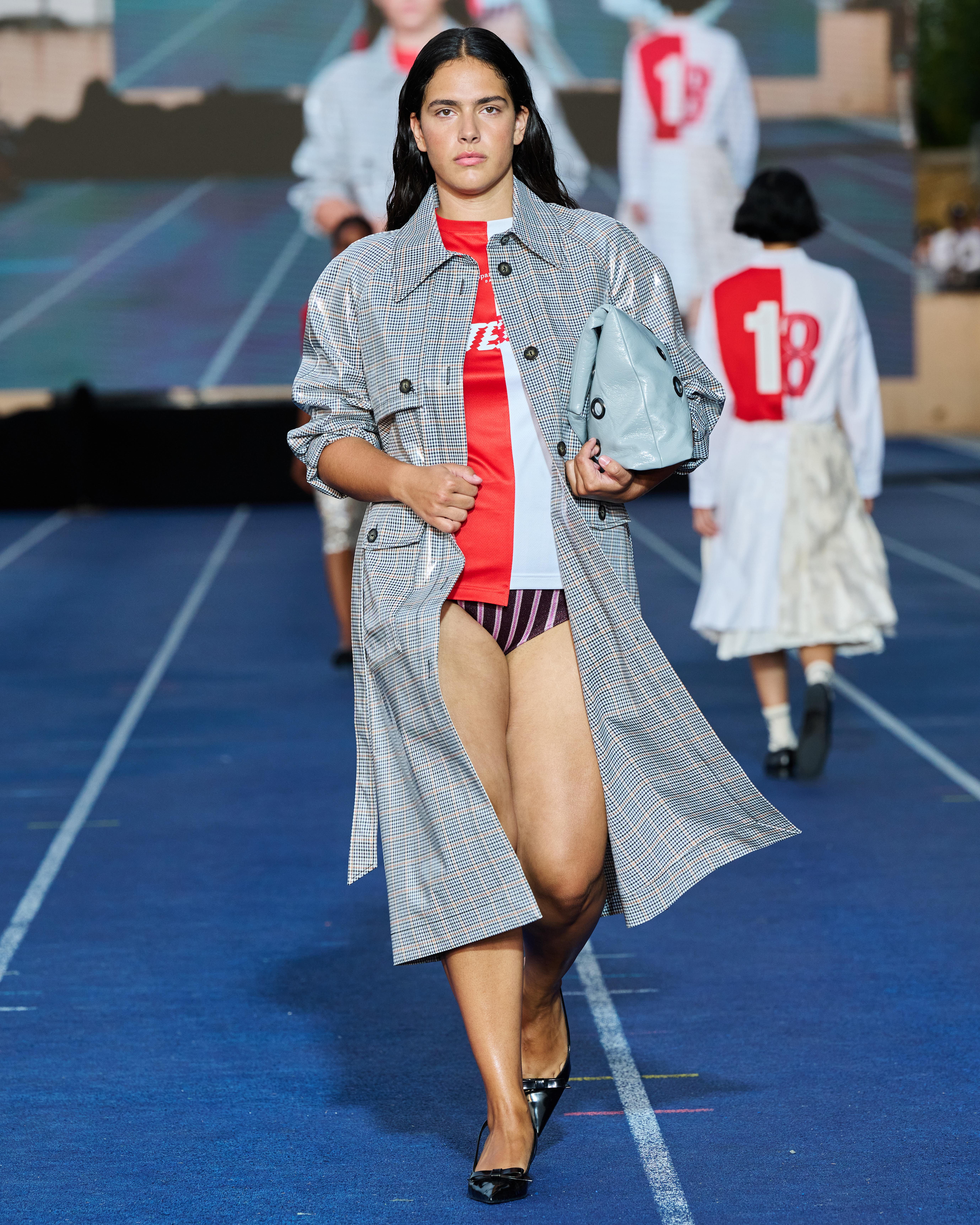
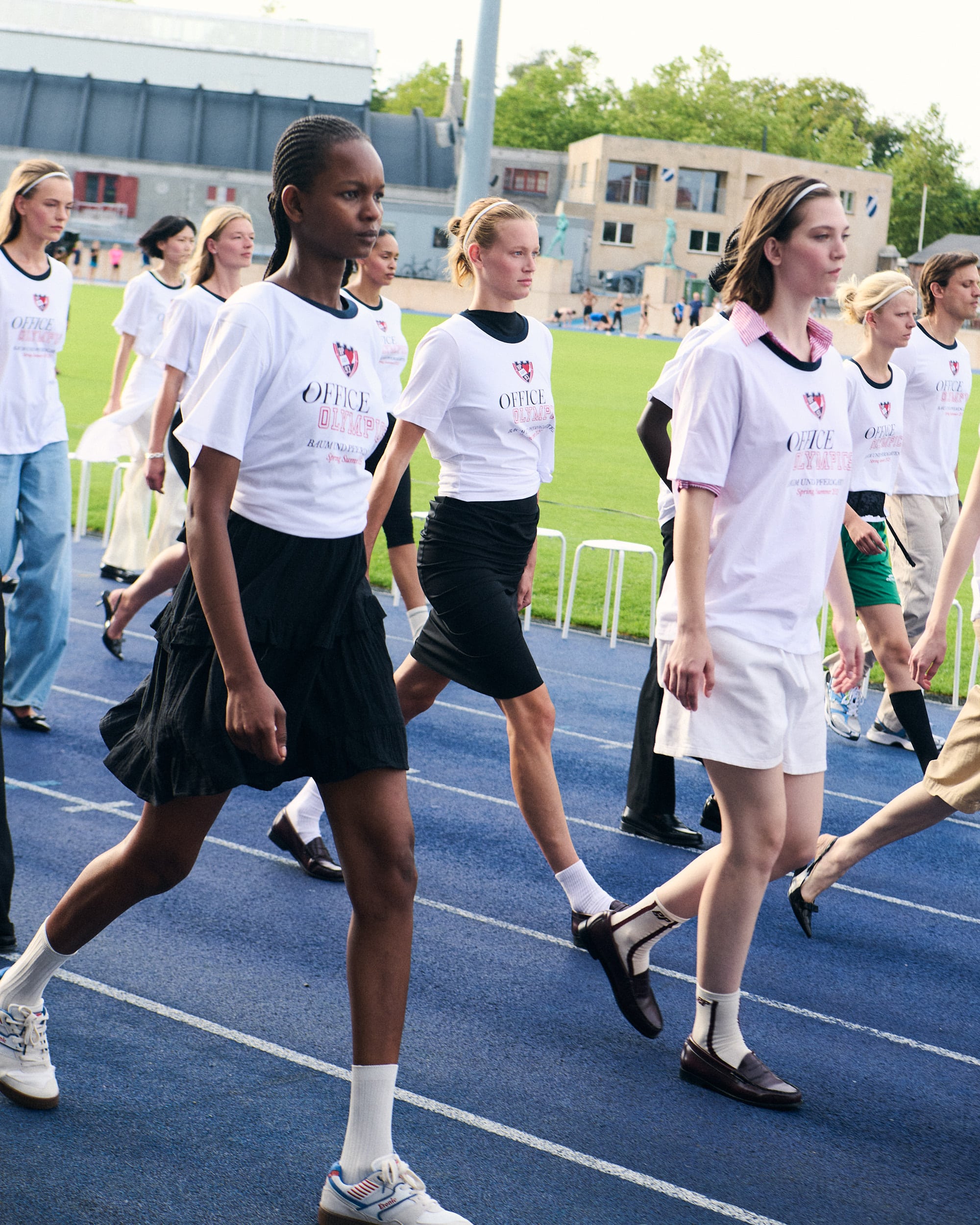
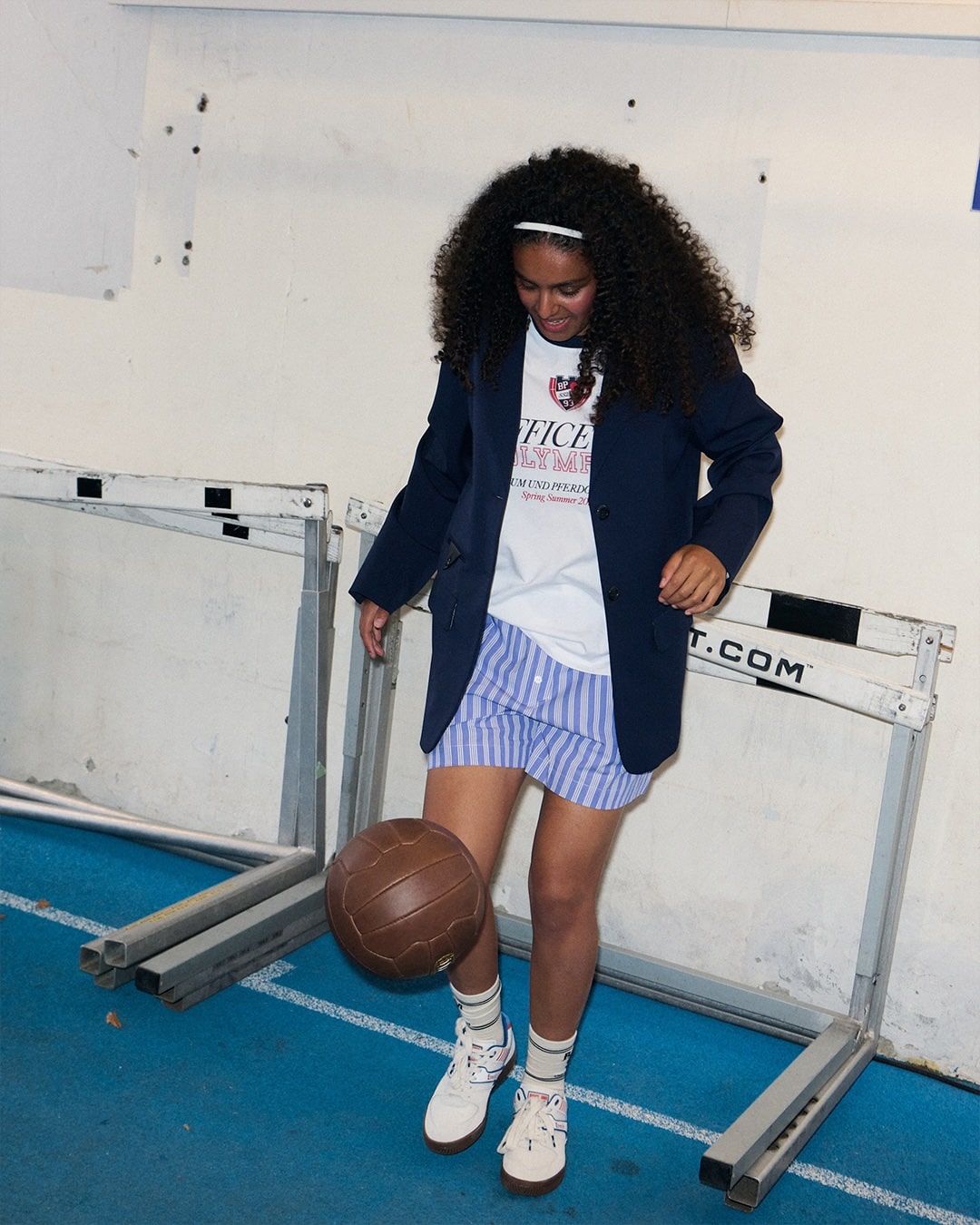
“At B.93, we have one core value: love,” says Mikkel Christopher Jensen, the clubs’ creative and commercial director. “It’s expressed in everything we do and how we manage all parts of the club, from children and amateur sides to the professional side of the club. We treat our players, staff and co-workers with the same love and respect that we would show to our own children. It’s a great way to keep ourselves in check. Would you encourage your kid to bet on sports? Would you shout at your kid for making a mistake? This simple principle helps us make decisions and navigate challenges.”
This approach, the club believe, makes them unique in the footballing world. In part, B.93’s ethos was inspired by disillusionment with football more widely. “We notice that many fans are longing for clubs and teams that they can identify with,” Jensen adds. “It seemed like there was space for an alternative way to run a professional football club; a way where we could still compete in a highly-professionalised football world while still maintaining a values-driven, inclusive approach to our fans. It’s still about winning, but it’s equally about how we win.”
Implementing these values, the club has championed initiatives that are rarely seen in football. One such initiative was the introduction of paternity leave for players in the men’s team, which no club had done before. “We believe in supporting our players not just on the pitch but off it as well,” Jensen says. “In a profession where taking time away from the game is often viewed as something you simply cannot do, we wanted to challenge that notion. Encouraging players to take paid paternity leave reflects our commitment to their well-being and to creating a balanced life. Why shouldn’t you be able to spend time with your newly born child, just because you are a football player? It’s important to us that our players can be present for their families and maintain a healthy work-life balance. By doing this, we hope to set a positive example and normalise family support in professional sports.”
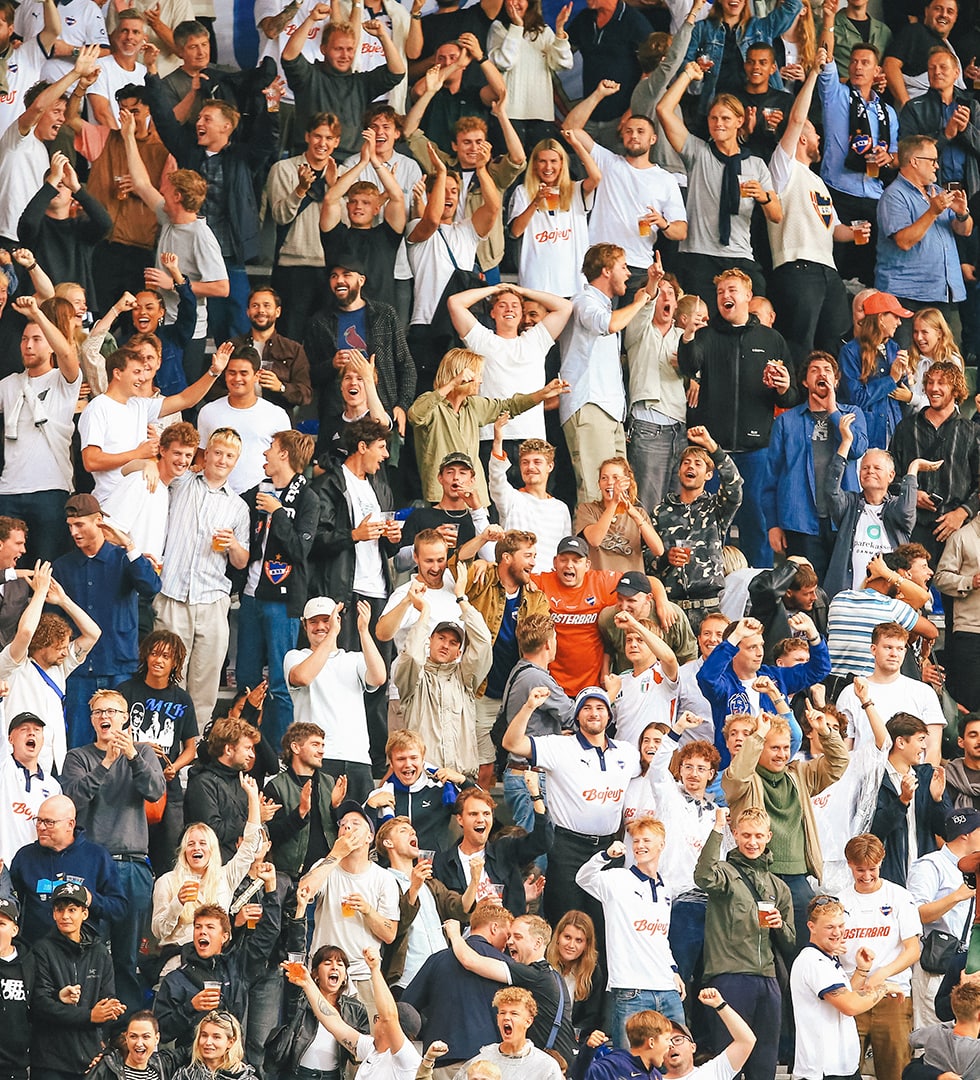
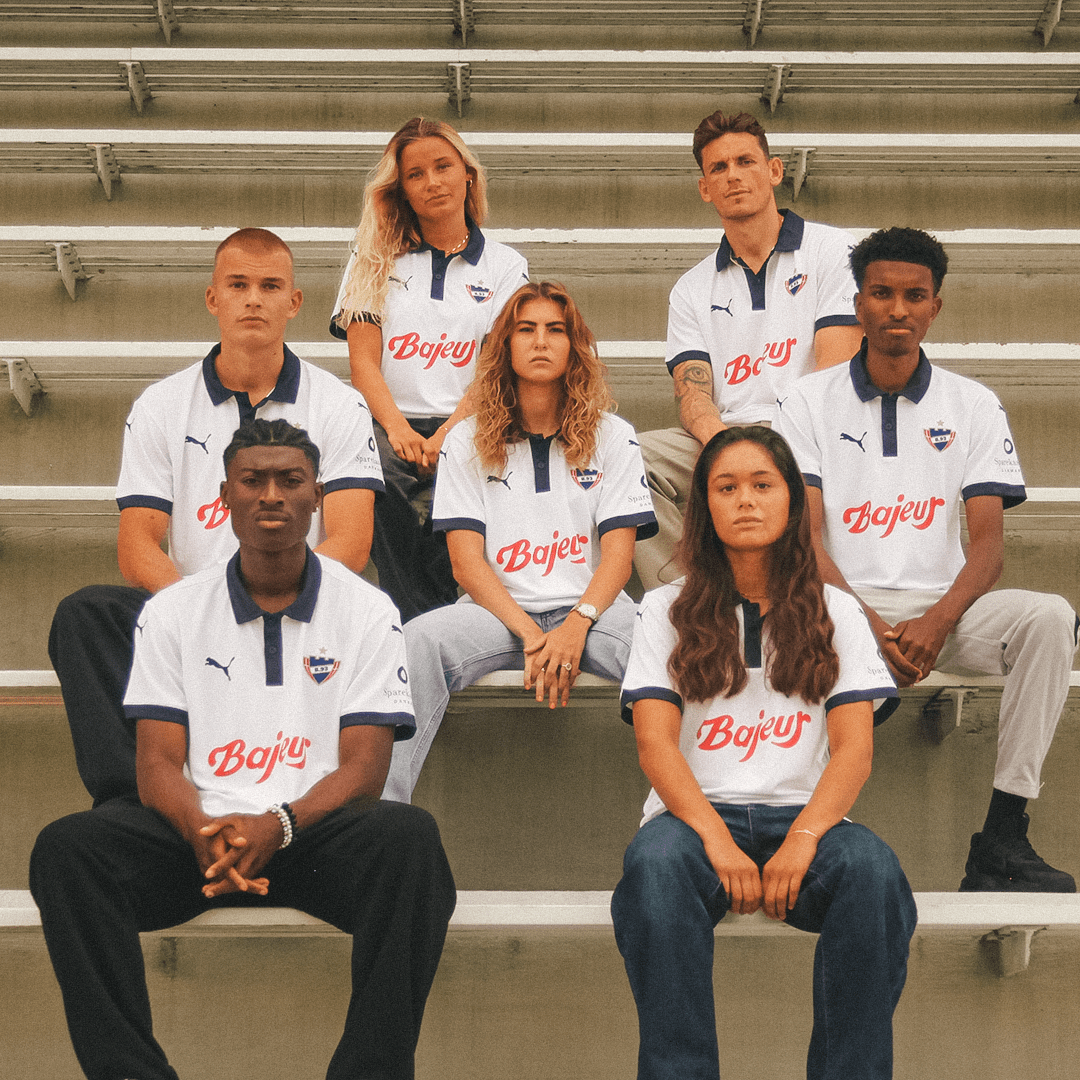
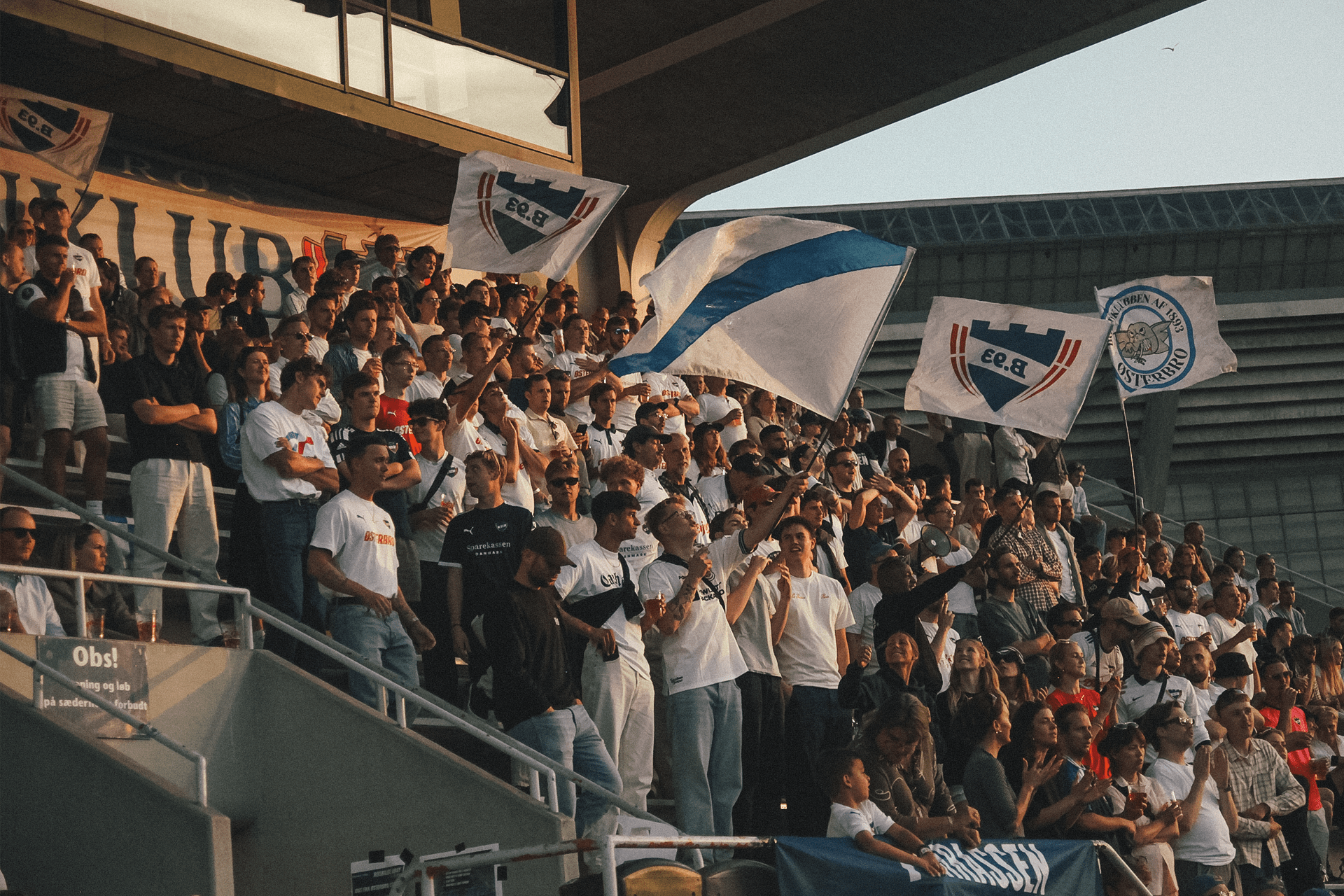
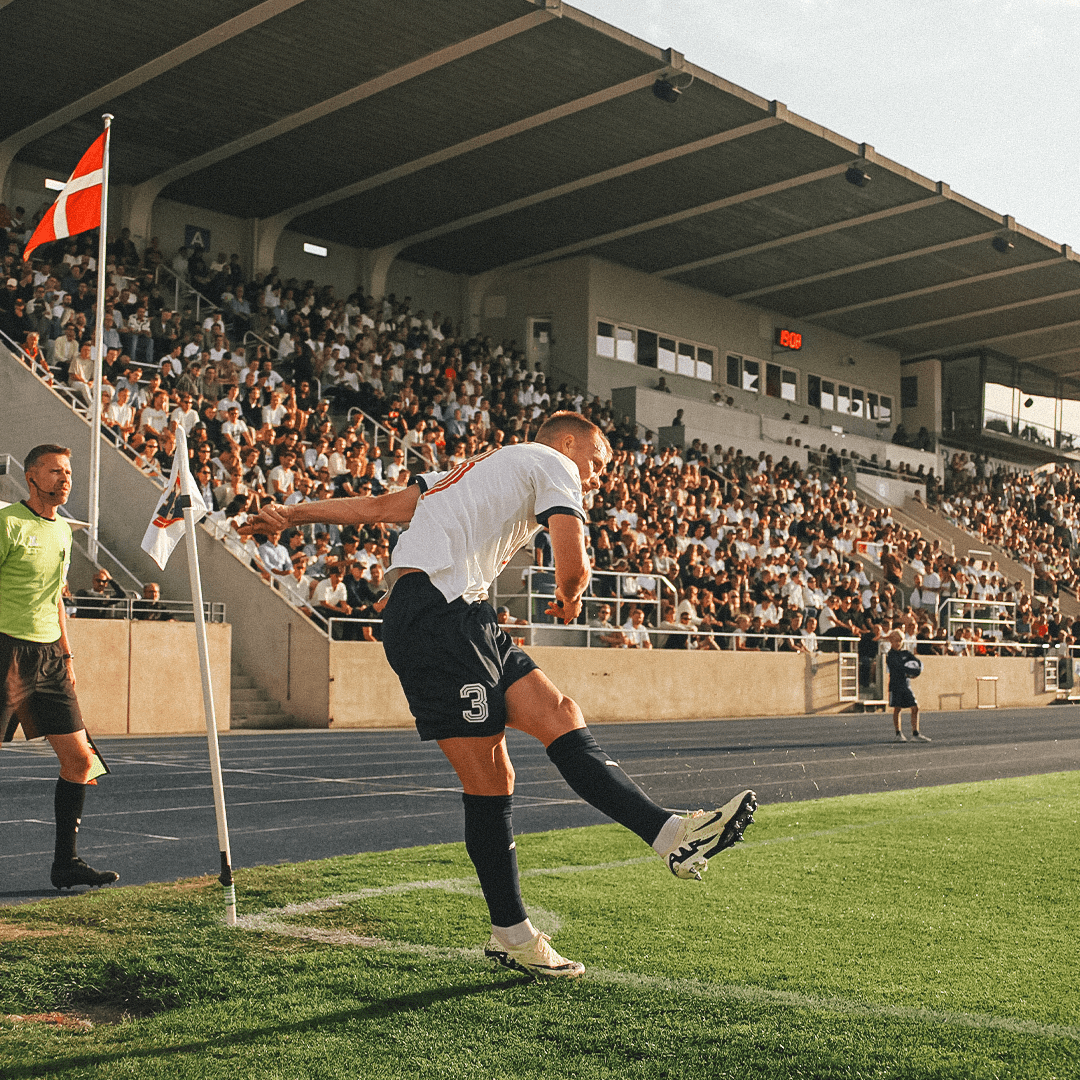
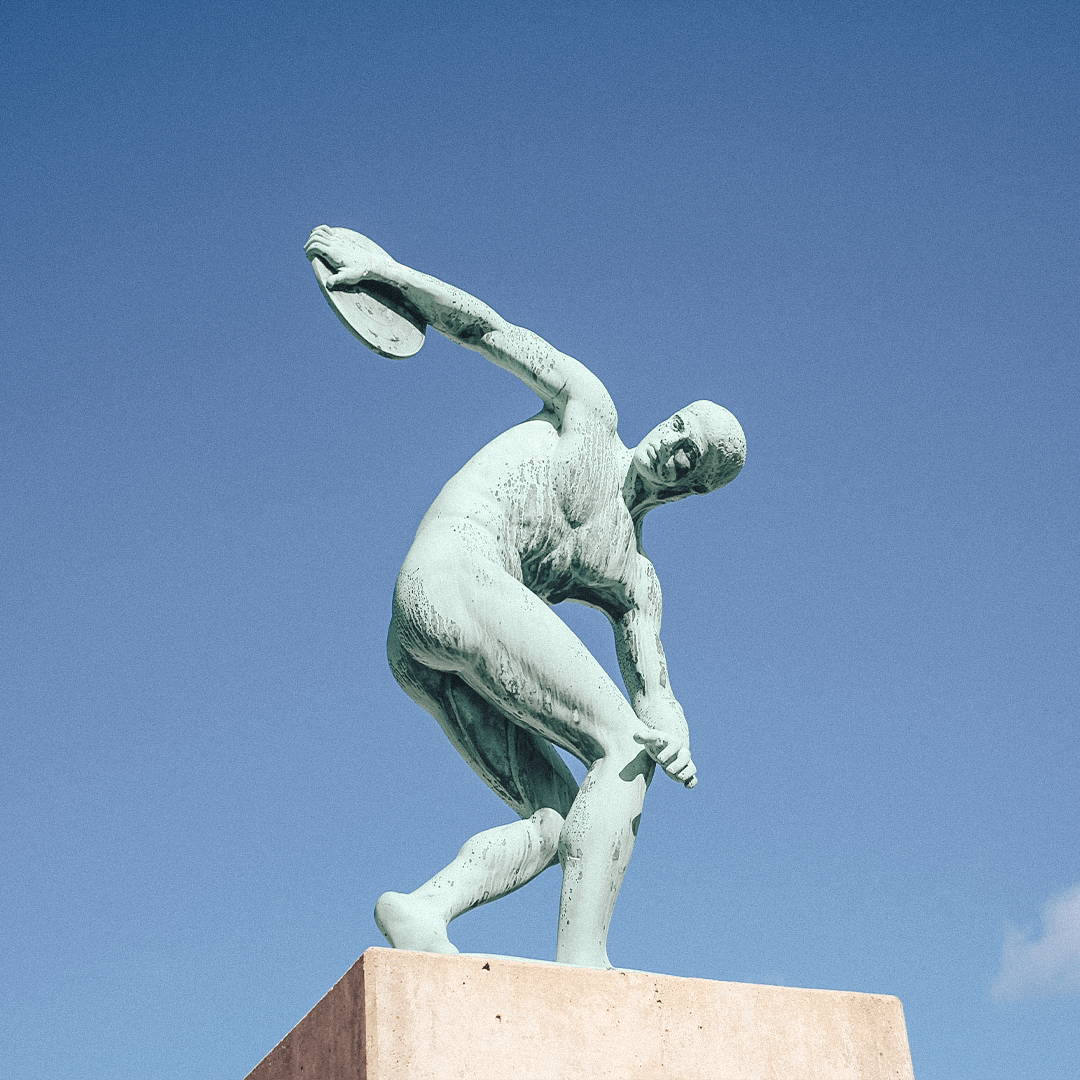
As well as the focus on love and inclusion, B.93’s unconventional approach includes its commercial partnerships, collaborations and even stadium food which, at times, has eschewed pies and pints in favour of oysters and wine. A huge part of this strategy is the club’s location in the midst of one of Europe’s fashion and design capitals. “Being a Copenhagen institution, it’s impossible not to be shaped by the culture and creativity of the city,” Jensen says. “So for us, it felt natural to incorporate art, fashion, and creativity into the club and the overall experience. We see B.93 as more than just a football club; we view ourselves as a cultural institution and with that, we have a responsibility to take art and creativity just as seriously as the game itself.”
Part of this art-first strategy includes working with local artists and creatives, many of whom have been given the chance to rework the club’s home shirt. One such artist is Jon Pilkington, who grew up in the North West of England but is now based in Copenhagen. “I was excited by their passion, intelligence and the confidence in which they allowed me to take up this project,” Pilkington remembers of the collaboration. “We had a loose framework, and I was allowed to be free within this. I really liked the idea of bridging the gap between artists and football, which is something I have been chipping away at for a while independently. We see a lot of clubs outsourcing artists and designers, but the concept and history of B.93 really resonated with me. My work is rooted in histories and I was excited to delve into the B.93 history to create something simple and classy, but also relevant to the club.”
Working with artists based in the city and collaborating with Copenhagen’s fashion crowd has allowed B.93 to deepen its ties with the local community, something that goes back to Jensen’s plan for the club. For Pilkington, who enjoys going to Østerbro Stadion, this is a big part of the club’s appeal. “For a lot of people who might not go to the game, it has opened a lot of doors,” he says. “It’s a social space alongside the football. It breaks down a lot of barriers that football usually has; it’s affordable and very welcoming to all.”
B.93’s focus on art extends beyond collaborations and special jerseys. “We see art as a way to inspire and train our players,” says Jensen. “We take both our men’s and women’s teams to art museums where we watch and discuss art. We believe that the perspective and attention to detail that comes from engaging with art can be applied on the pitch as well. It’s crucial for us to acknowledge that while we are all footballers and coaches, we are also people with a wide range of interests. By embracing this, we create an environment where players can fully express themselves – and that leads to better results on the pitch.”
With its creative approach, B.93 is part of an emerging group of clubs who are aiming to do things differently. There’s Venezia, playing in Italy’s Serie B, who have previously worked with design studio Bureau Borsche and now have a partnership with Drake’s NOCTA line, while Athens Kallithea, recently promoted to Greece’s top flight, have taken a similarly artistic approach. Some of these teams only appeal to kit collectors across the world, but B.93 has similarities with Athens Kallithea for the way that it is using progressive design and creative ideas to reenergise its local fanbase. It's important for B.93 that the team remains rooted in the community, and all the evidence suggests it seems to be working and match attendances are up.
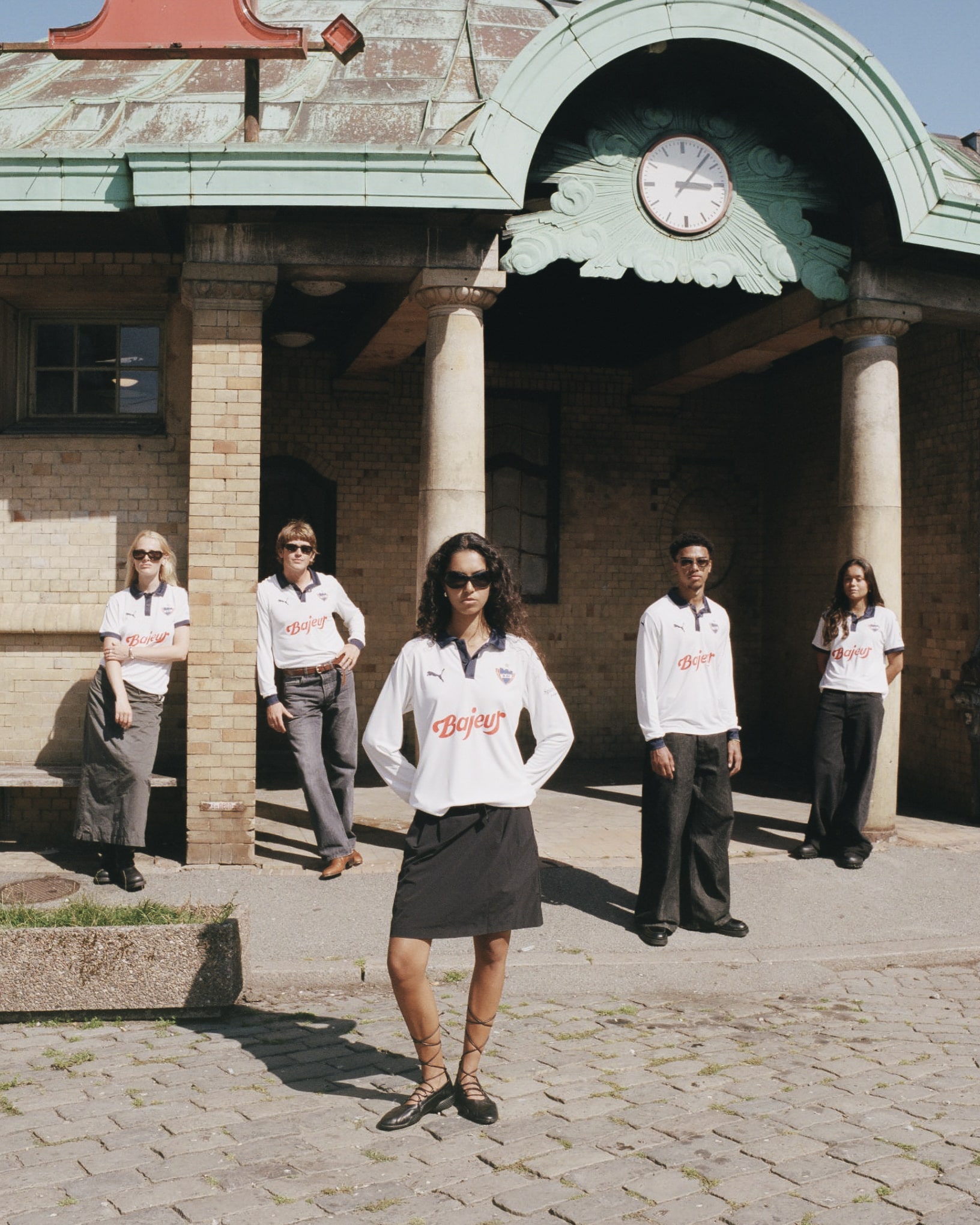
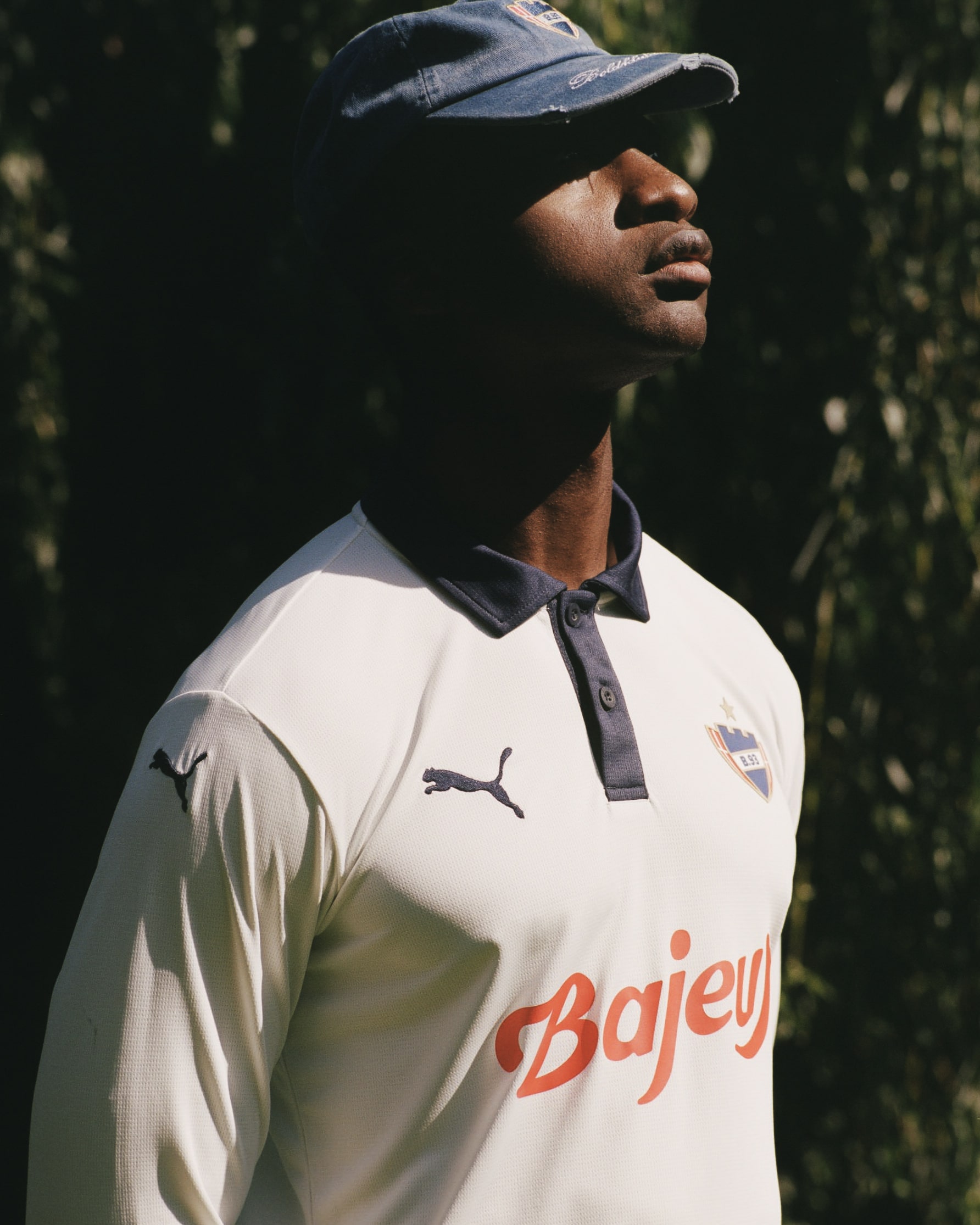
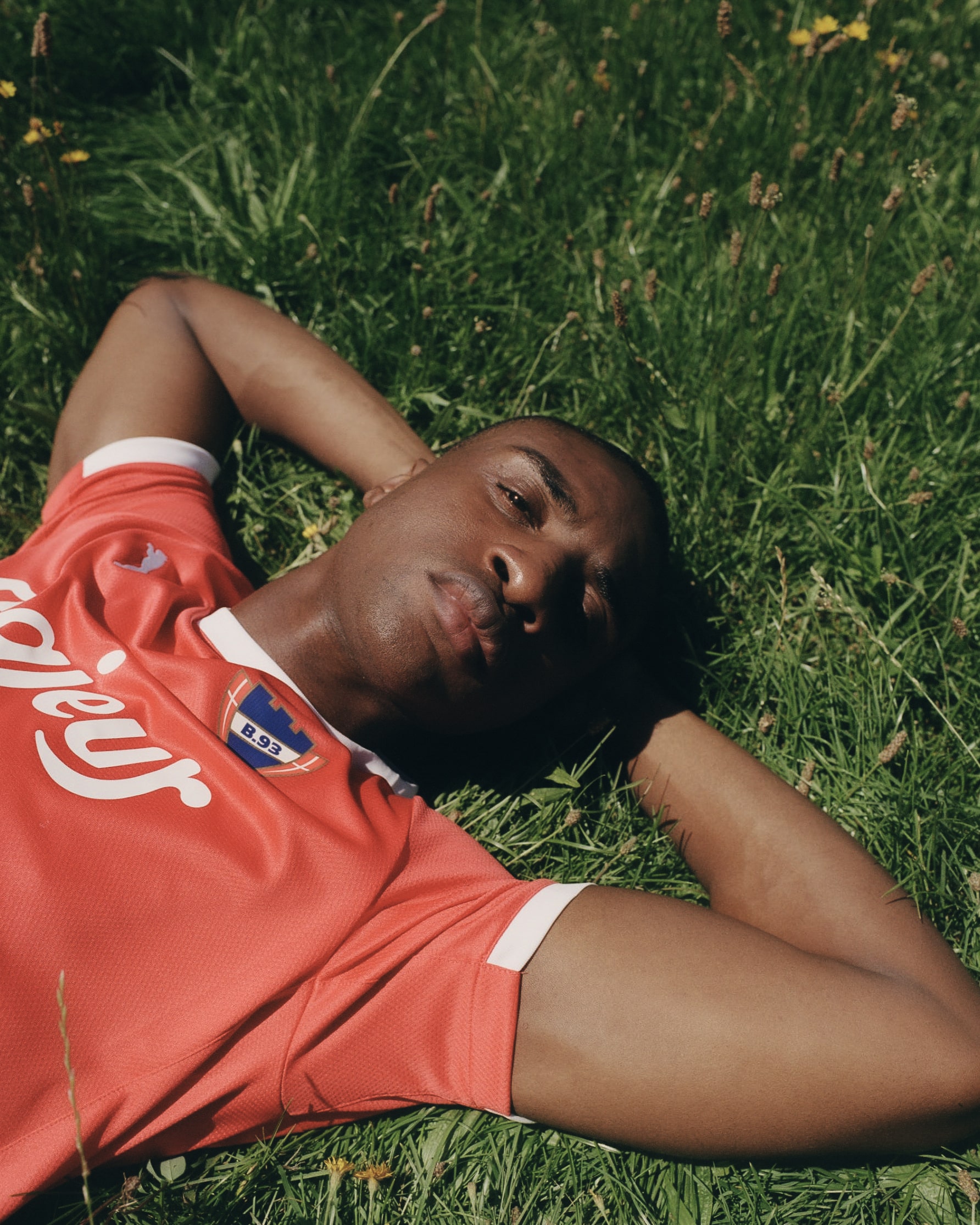
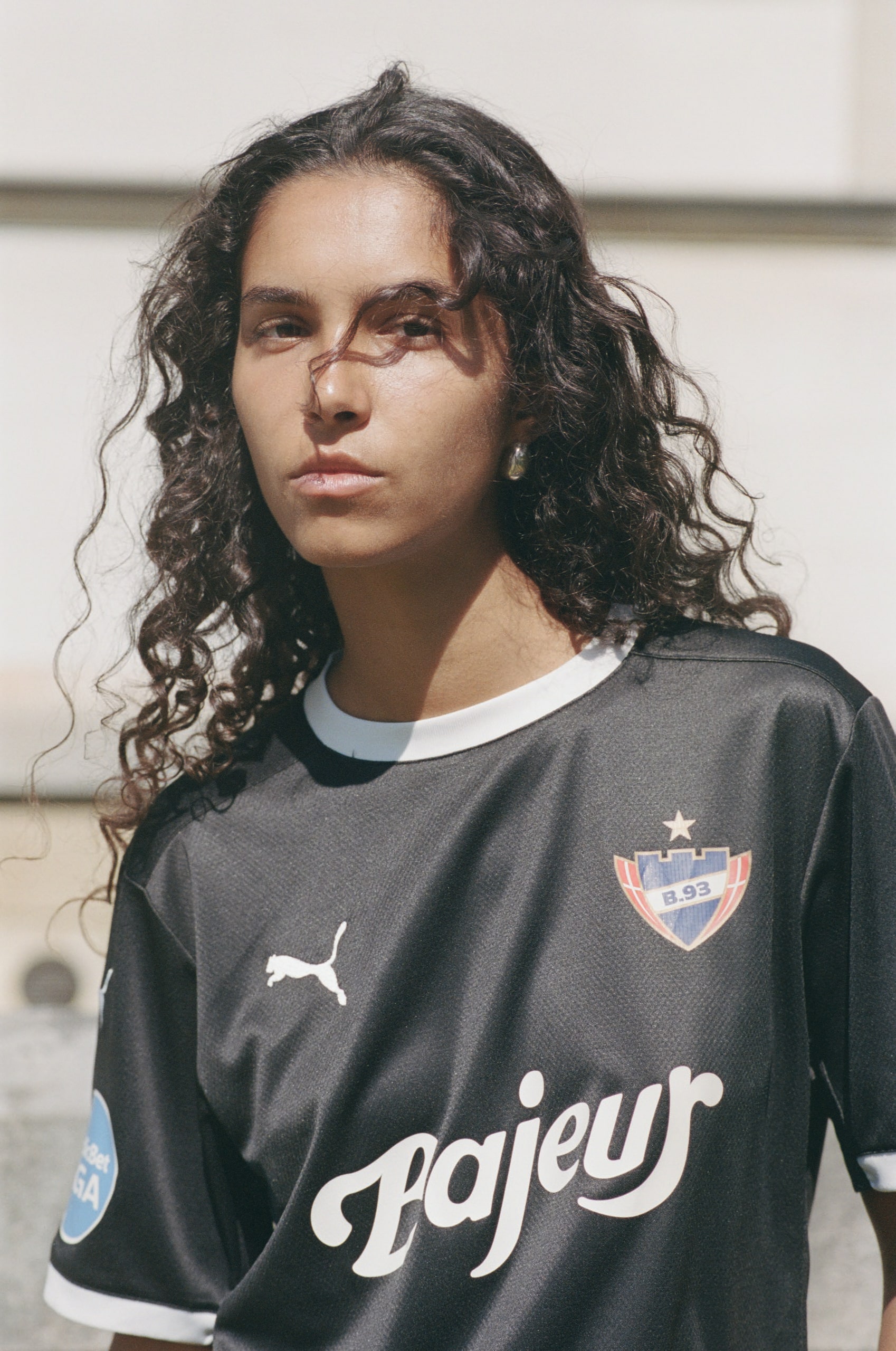
“In building an alternative club, we recognise that fans come for all kinds of reasons, and that’s perfectly fine,” says Jensen. “Not every fan needs to obsess over offside traps or formations. It’s just as cool to support B.93 because we have one of the most beautiful jerseys in Europe, because we serve great food and wine at home games, or because our values resonate with them.” Maybe it’s true that B.93’s results haven’t always been as good as they once were, but speaking to people like Jensen it’s clear that the club is aiming for something more than that. This isn’t about climbing the table at all costs, it’s about building something creative, sustainable and fun.
One of the catalyst’s for B.93’s rise through the ranks – both on and off pitch – was the arrival of midfielder Nicolaj Thomsen. After a career with spells at AaB and FC Copenhagen, two of Denmark’s biggest clubs, as well as a year in France and an appearance for the Danish national team, Thomsen felt tired of the football world. Aged just 29, he considered retiring.
“But then I started wondering if it could be done differently, with a whole lot of joy and love for the game and the beautiful things surrounding it,” he says. “I wanted to feel like a kid playing again, without all of the distractions, purely for the love of football. And I wanted to make an impact on and off the field. My whole life is based around Copenhagen, I love the city. So one day, I decided to call up B.93 to see if they wanted another guy in the squad. Luckily, they did.”
Officially, Thomsen’s role is as a player and an important part of the first team squad, but he is also an example of the creative approach that B.93 takes. He helps out Jensen with his role as creative director, and his network of friends and contacts within Copenhagen’s creative industries has helped B.93 deepen their ties within it. He is also one of the team behind Another Aspect, a menswear brand he founded with two of his closest friends. If anyone sums up B.93’s unconventional approach, it’s Thomsen.
“My main role is being a player, but the branding part of this club has fascinated me from the beginning,” he says. “It’s creating a new form and template for how a football club can be seen and used. Everything is very fluid in our club and every idea is received with an open mind. I try to help with everything I can and I love doing that. I find it very unique that we, as players, have the opportunity to influence what the club is doing.”
Whether it’s Thomsen’s connection to the creative world in Copenhagen, or working with brands and artists based across the city, so much of B.93’s work comes back to the idea of community. “To be relevant on a global scale, you need to be firmly rooted locally,” says Jensen, pointing to the Østerbro neighbourhood, a central part of Copenhagen that hosts B.93’s clubhouse, training facilities and home ground. “One of the fan chants goes: ‘If there was no B.93, there would be no Østerbro.’ But the truth is probably that there would be no B.93 without Østerbro either.”
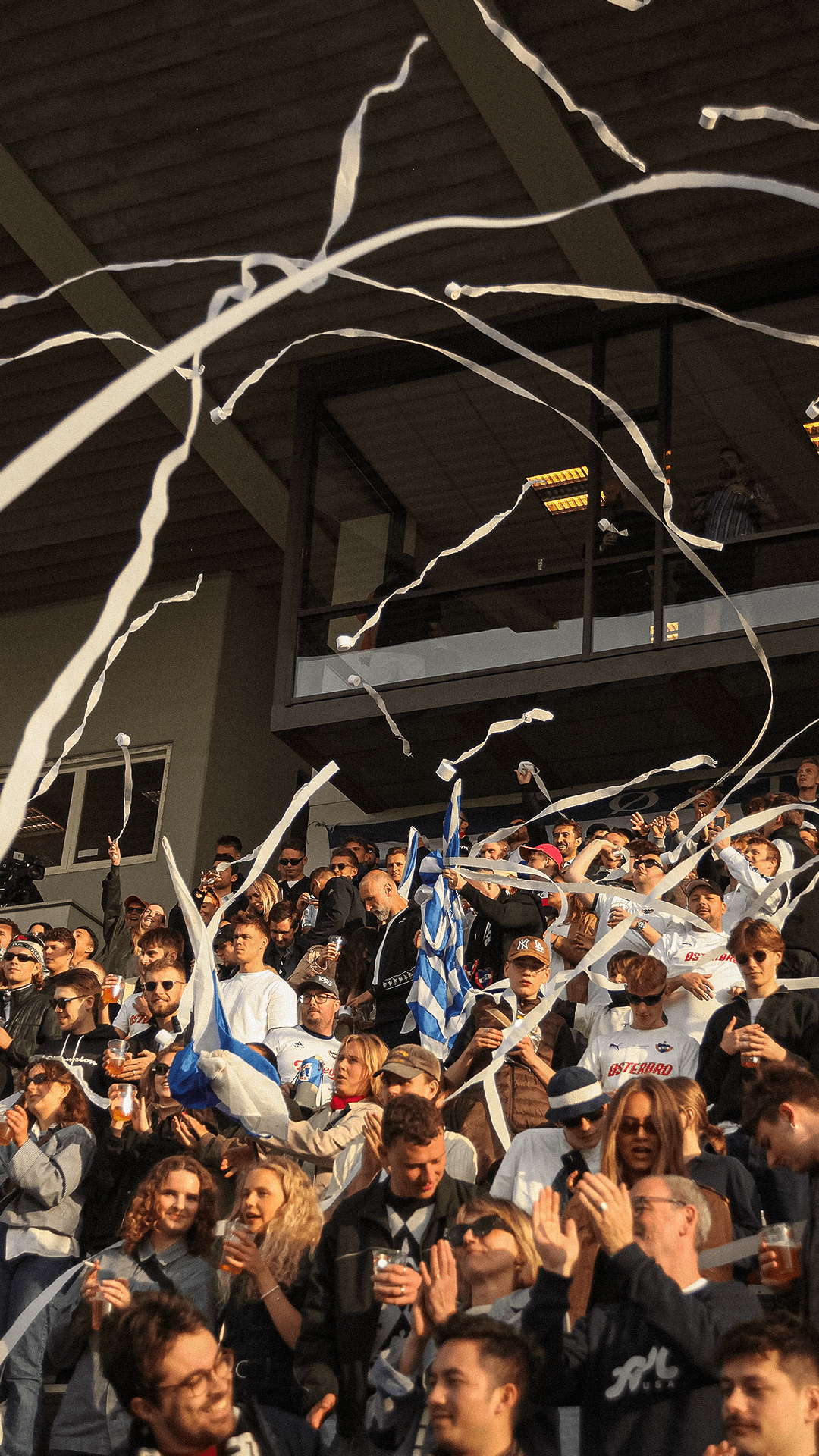
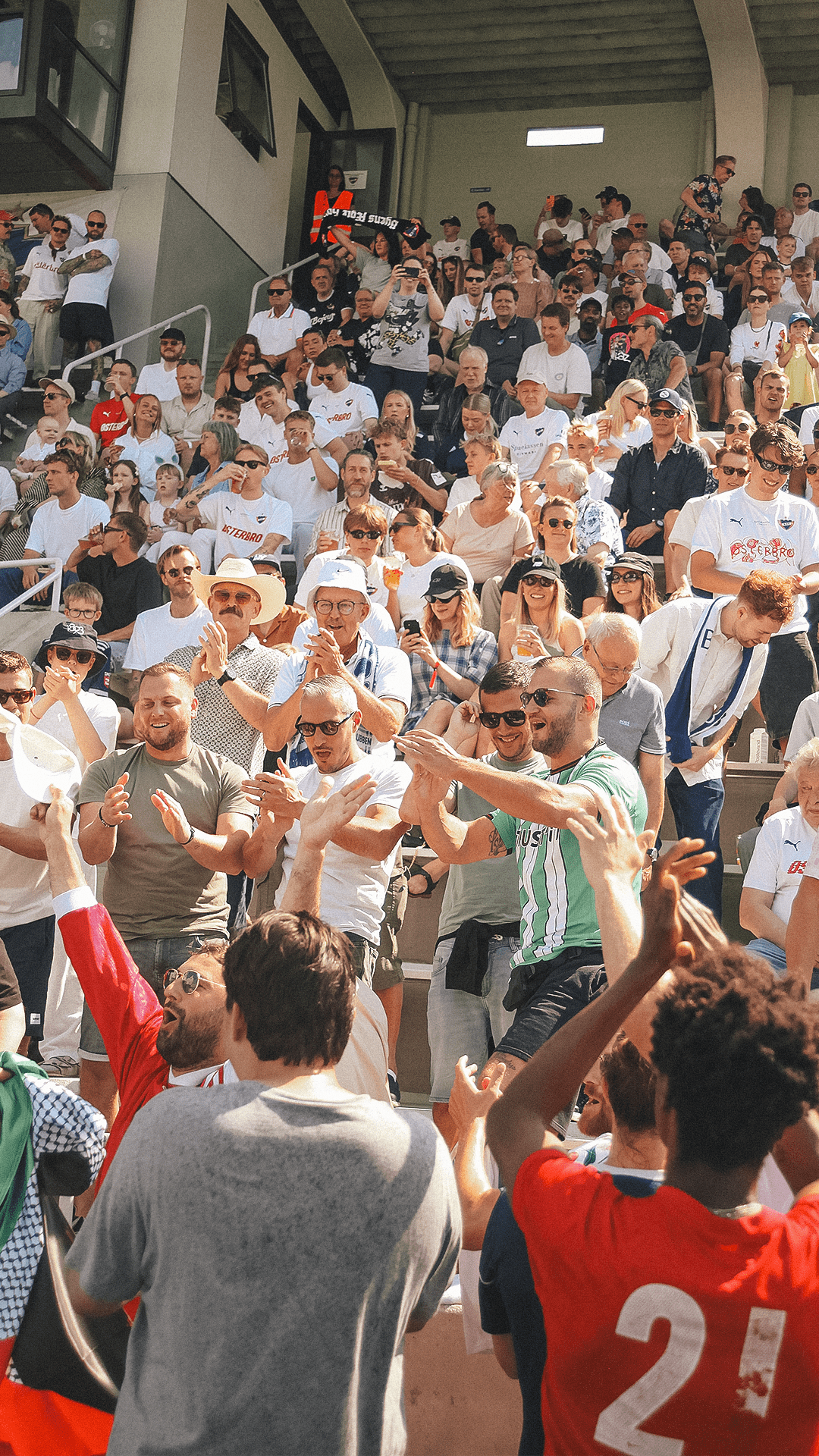
Images courtesy of B.93
